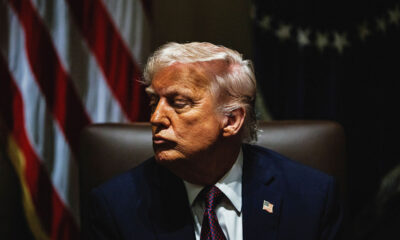To the mat; extra help; FACS of the case; and other highlights of recent tax cases.
Corona, California: Tax preparer Salvador Gonzalez has been sentenced to six years in prison for preparing false returns for clients.
For more than a decade, Gonzalez operated the tax prep business Grace’s Lighthouse Resource Center and during that time consistently claimed false deductions such as charitable donations and medical expenses on thousands of returns he prepared for clients. He also directed his clients to create sham corporations and fraudulently deduct such personal expenses as their mortgage, car and utility payments as business expenses.
Gonzalez, who previously pleaded guilty, caused a total federal tax loss of at least $28 million.
The court also ordered him to serve a year of supervised release and to pay $403,908 in restitution to the United States. The federal government also filed a civil complaint against Gonzalez that seeks to permanently enjoin him from preparing, assisting in, directing or supervising the preparation or filing of federal tax returns, amended tax returns or other related documents or forms for others. Gonzalez consented to the entry of the civil judgment and permanent injunction.
New York: Gregory Gumucio, of Colorado, leader of a nationwide yoga business, has pleaded guilty in connection with a conspiracy to commit tax evasion.
Gumucio was the longtime leader of Yoga to the People, from which he received more than $3.5 million in income between 2012 and 2020. He did not file individual or business returns or pay any income taxes for at least eight consecutive years.
In or around 2006, Gumucio founded To the People, which was originally donation-based. Over the following years, the enterprise opened some 20 studios or affiliated entities throughout New York City and in various other places, including California, Colorado, Arizona, Florida and the State of Washington.
From 2010 to 2020, To the People and its affiliates generated gross receipts of more than $20 million yet never filed a corporate return with the IRS. From approximately 2012 through 2020, Gumucio never filed a personal return with the IRS or paid any income taxes. During the period, Gumucio enjoyed an extravagant lifestyle, which included frequent foreign travel; expensive hotels, meals and clothing; NFL season tickets; and country club payments.
Gumucio and his conspirators used various methods to evade taxes, including accepting yoga students’ payments in cash; failing to maintain a corporate headquarters or keep corporate books and records; using nominees to disguise Gumucio and his co-conspirators’ connection to various entities; and maximizing unreported income.
Gumucio faces up to five years in prison. He has agreed to pay $2,560,300.93 in restitution to the IRS.
Slidell, Louisiana: Tax preparer Celina Bolton-Fultz, 35, has pleaded guilty to 30 counts of assisting in filing false returns, five counts of filing her own false returns, four counts of making false statements and two counts of theft of government funds.
From 2018 through 2022, Bolton-Fultz submitted 30 false returns for seven clients of her tax prep business, fraudulently inflating their income by adding fake “household help” income to their returns to fabricate and inflate tax credits. She also fraudulently reduced her own income on her returns for 2017 through 2021, fraudulently reducing her gross receipts and reporting false expenses for businesses that she owned.
Bolton-Fultz also pleaded guilty to two frauds concerning the CARES Act. She pleaded guilty to four counts of making false statements for submitting applications in 2020 and 2021 for Paycheck Protection Program loans in which she submitted fake tax forms and provided false information about her businesses’ payroll. She also pleaded guilty to two counts of theft of government funds for making fraudulent applications for Economic Injury Disaster Loans, inflating her businesses’ revenues and expenses and submitting false tax documents.
In total, she received $204,103 in funds through the fraudulent applications. She has agreed to pay at least $405,133 in restitution to the IRS and the Small Business Administration.
She faces up to three years in prison for each tax count, five years for each of the PPP fraud counts and 10 years for each of the EIDL fraud counts; she faces a fine of up to $100,000 for each of the tax counts and up to $250,000 for each of the PPP and EIDL fraud counts, or the greater of twice the gross gain to the defendant or twice the gross loss. Bolton-Fultz also faces supervised release of up to three years for the PPP and EIDL fraud counts and up to a year for the tax counts, as well as a special assessment fee for every count to which she pleaded guilty. Sentencing is Jan. 23.
Walled Lake, Michigan: Former CPA Paul Kozowicz, 75, has pleaded guilty to evading some $318,000 in federal income taxes.
His guilty plea arose out of a scheme that, according to court papers, resulted in his intentional failure to report more than $1.1 million in taxable income to the IRS over nine years. Between around 2002 and 2011, Kozowicz worked as a full-time salaried employee providing accounting and financial services for a law firm in Birmingham, Michigan.
In 2011, that firm reorganized, and Kozowicz became a part-time employee of the firm, making approximately 20% of his previous salary. To replace his lost income, Kozowicz became an independent contractor and provided accounting and consulting services to several other businesses.
Kozowicz formed FACS Inc., which purported to be the entity that provided these accounting and consulting services. He opened a bank account in the name of FACS but did not declare any of the income he earned using the name FACS on any individual or corporate tax return between 2011 and 2019. He also did not maintain any corporate books or records for FACS, nor did he observe or respect any other corporate formalities such as the State of Michigan’s annual corporate filing requirements.
In addition, according to the plea agreement, Kozowicz treated the monies deposited in the FACS account as his own and used the money freely for personal expenses and needs. Yet on his personal federal income tax returns, the only income Kozowicz declared was his reduced law-firm salary and certain taxable Social Security receipts. FACS never filed a corporate tax return.
Kozowicz further admitted that between 2011 and 2019, he earned some $1.15 million in unreported income through FACS and evaded payment of approximately $318,243 in tax.
Sentencing is Jan. 21. He faces up to five years in prison and must pay $318,243 in restitution to the IRS.
Randolph, New Jersey: Business owner Joseph Caravella has pleaded guilty to tax evasion for evading employment tax penalties.
Caravella owned several masonry companies and from 2008 to 2016 the IRS assessed some $650,000 in Trust Fund Recovery penalties against him for causing three masonry businesses that he owned to not pay their federal employment taxes.
From around March 2008 through around April 2019, Caravella sought to evade the payment of these penalties by placing companies that he controlled in the names of nominee owners and avoiding using a bank account in his own name. During that time, he continued to cause his businesses not to pay employment taxes, resulting in an additional loss of $1.2 million to the IRS.
In total, Caravella caused a federal tax loss of $1,885,519.39.
Sentencing is March 18. He faces up to five years in prison, a period of supervised release, restitution and monetary penalties.


 Economics1 week ago
Economics1 week ago
 Personal Finance1 week ago
Personal Finance1 week ago
 Economics1 week ago
Economics1 week ago
 Blog Post6 days ago
Blog Post6 days ago
 Personal Finance1 week ago
Personal Finance1 week ago
 Economics1 week ago
Economics1 week ago
 Economics6 days ago
Economics6 days ago
 Economics7 days ago
Economics7 days ago











